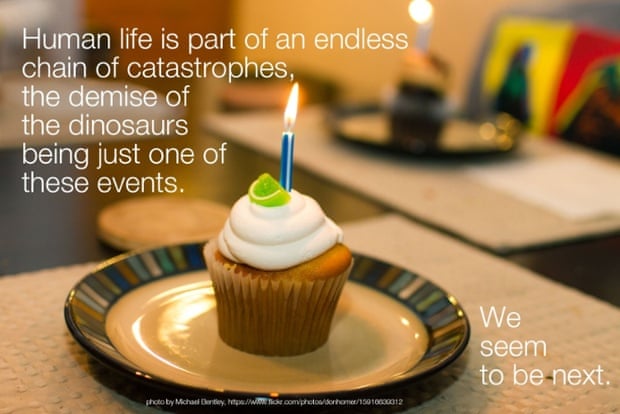
If you or a loved one is having a heart attack, your most pressing concerns probably include how quickly you can get to the hospital and the quality of care you’ll receive. You’re probably not thinking about the hospital’s board room, even though quality of care for heart attacks and many other conditions may be determined in large part by decisions made there.
Several studies show that hospital boards can improve quality and can make decisions associated with reduced mortality rates. But not all boards do so.
”Most board members are community leaders, serving on the board to support fund-raising goals,” said Ashish Jha, a Harvard physician. “They don’t think it’s their job to hold management accountable for performance. Board members often feel like clinical quality is physicians’ jobs, and they don’t want to step on doctors’ toes.”
The trouble with this perspective is that boards, and other hospital management, can influence care in ways that individual physicians cannot. They can promote protocols that ensure that crucial information is conveyed to the right people at the right time. They can establish systems so that equipment and supplies are available when needed. They can set expectations for a culture of high performance,not just from individuals but from teams of them that must work together. And they can require quality to be monitored against goals with incentives to push it toward those targets.
”I’m a much better doctor in a well-managed hospital where the systems are in place to help me do my best work,” Dr. Jha said. “Even a great chef can’t produce a good omelet with eggs that are stored in the freezer or the stove doesn’t work reliably.”
Each hospital is a bit different, but generally board members are recruited for either their fund-raising prowess (if the hospital is nonprofit) or for expertise in a specific field like finance or regulatory compliance (if the hospital is for-profit), Dr. Jha said. Few board members are medical professionals. Most boards perpetuate themselves — in other words, the board itself, or its chairman, invites new members to join, rather than holding an election among a larger group of stakeholders.
In general, hospital boards do not view themselves as institutional champions of quality. According to work by Dr. Jha and his colleague Arnold Epstein, only 20 percent of nonprofit hospital board chairmen reported that the board was one of the top forces for quality at their hospitals. At hospitals with low-quality scores on standards established by Medicare, only 11 percent did so. Only half of boards view clinical quality as one of their top two concerns. In contrast, financial performance was a top priority for about three-quarters of hospital boards. The analysis examined the association of boards’ priorities with a wide range of evidence-based measures of quality, including those for heart attack care.
Troublingly, most hospitals boards can’t accurately assess their institution’s quality. There’s a Lake Wobegon effect*: More than half of hospitals with low quality thought they were actually above average.
*Main article: Illusory superiority :Lake Wobegon is a fictional town in the U.S. state of Minnesota, said to have been the boyhood home of Garrison Keillor, who reports the News from Lake Wobegon on the radio show A Prairie Home Companion.
The Lake Wobegon effect, a natural human tendency to overestimate one's capabilities, is named after the town. The characterization of the fictional location, where "all the women are strong, all the men are good looking, and all the children are above average," has been used to describe a real and pervasive human tendency to overestimate one's achievements and capabilities in relation to others. The Lake Wobegon effect, where all or nearly all of a group claim to be above average, has been observed in high school students' appraisal of their leadership,[8] drivers' assessments of their driving skill,[9] and cancer patients' expectations of survival.[10]
Almost all hospital boards have the power to hire and fire the chief executive officer, and the management that the C.E.O. provides reflects the board’s priorities. Jonathan Kalodimos, an economist with the Securities and Exchange Commission, found that when hospital boards exert stronger governance over management, as measured by level of involvement in setting compensation levels, more effective medical treatment is provided, leading to lower heart attack mortality rates. But when the chairmen of only 44 percent of hospital boards choose clinical quality as a top priority for evaluating C.E.O. performance, that may signal that quality is not paramount. Hospitals with higher quality are twice as likely to emphasize it in C.E.O. evaluations by their boards, according to Dr. Jha’s work.
Hospital C.E.O.s are highly paid, in general, earning annual salaries of just under $600,000, on average. But those salaries are not related to clinical quality, according to work by the Harvard physician Karen Joynt and colleagues. Instead, C.E.O. salaries are higher at large teaching hospitals, at institutions with higher patient satisfaction, and at hospitals that use more advanced technology.
In turn, C.E.O. leadership and management decisions affect quality. A health economist at Oregon Health & Science University, K. John McConnell, and his colleagues found that hospital management practices adopted from manufacturing and technology sectors — such as “lean” methodologies developed by Toyota — were associated with better care and lower 30-day mortality from heart attacks. These management practices include eliminating inefficiencies and variations, fostering collaboration, setting targets and tracking progress toward them. They can reduce the time it takes between when a heart attack patient arrives at a hospital and when he’s treated, improving outcomes. Other work found good management is associated with better quality of care in intensive care units.
If board and management leadership are so important for quality, how can we foster more of it? One way is to promote competition. Work byMr. McConnell and colleagues found that hospitals facing greater competitive pressure have better management practices, though the relationship is of modest strength. This is consistent with other evidence reviewed by the health economists Martin Gaynor and Robert Town. They found that, in general, when hospitals consolidate, reducing competition, quality suffers.
The market should promote quality another way. Hospitals whose heart attack patients survive longer have a greater market share that grows over time, a study by the Harvard economist Amitabh Chandra and colleagues found.
This doesn’t mean we should sit back and let the market as it exists today be the sole arbiter of quality. Policy can play a role as well, working with the market, not against it. One way is to base payment to health care providers more on quality and less on volume. In theory, this should align what hospital boards tend to focus on — financial performance — with what we might prefer they focus on — quality. Though many attempts at pay-for-performance have yielded disappointing results, one reason may be that the incentives (and penalties) were not large enough.
It might also help if more members of hospital boards were trained in clinical quality, as called for by prominent health care quality organizations. Just 32 percent of boards receive such training.
The American health system is known for its high cost. But what’s just as troubling, if not more so, is the mediocre quality it delivers for that cost. It’s natural to think that direct caregivers — doctors, nurses, and other technicians and assistants — bear the entire burden of providing better care. But research shows that we should consider the environment and culture in which they work, which is shaped in large part by their institutions’ boards and management. If we don’t foster a focus on quality at high levels, even the best health care workers may not provide the best care.










